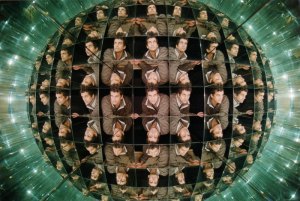 It occurs to me that I may have too much time on my hands, or on the other hand, this is what retirement should be all about–unfettered hours to wonder about “things”.
It occurs to me that I may have too much time on my hands, or on the other hand, this is what retirement should be all about–unfettered hours to wonder about “things”.
Preferring the latter conclusion, I wonder forward.
Once upon a time in a land far from here, or not, men (let’s be honest that women were seldom asked their opinion and mores the pity for that undoubtedly) gathered to discuss an important topic. Was it fruitful to continue in an “every man for themselves” mode or was their value in grouping together in mutual associations. Such associations of course presupposed that some individual freedom would be lost for the common good of all.
Thus the concept of government was conceived.
At first the common good was no doubt safety from marauding bands of bad guys from other tribes, but it soon led to giving up all kinds of individual rights for all kinds of common ends. If Babor’s extra production of wheat was needed to feed more than just his family, than Manduk’s herds of sheep need be fenced from trampling those fields.
Things went along in that fashion with different systems being tried out, eventually that led to strong men and rule by might rather than agreement. Rebellions and re-formations resulted in a myriad of different systems by which human beings organized themselves into larger and larger entities.
Lo and behold, a bunch of folks made their way to a “new world” which was quite old to the people who already lived there, but new enough to them. After pushing indigenous folks out of the way, they then threw off the yoke of king and Parliament, and found themselves with a country to set up.
Our illustrious fore-fathers, mindful of the social compact ideas of Locke and Rousseau and Montesquieu, set down in Philadelphia and over some months of wrangling and persuasion, arrived at what we call a Constitution, a document that sets out with some generality the rights and duties of citizen and government.
Ask about anyone and they would say, that this phenomenal document has served us well since 1789 or so. That seems to be based on the fact that we are still here as a country. Any cursory look at the document itself suggests that a good deal of the language is antiquated and now unclear. Do we really think in terms of militias any more? What is cruel and unusual?
The world has changed a lot since those days. We are increasingly a global society. We are a people who has grown in size from something in the area of 3 millions to over 300 millions. Our land has tripled or quadrupled since 1789. Our demographics are vastly different. Our ability to travel has increased exponentially. Our ability to get news on almost any subject has as well. Our technologies threaten to out pace our understanding of them or how they will impact on our daily lives.
Government systems are always a compromise of sorts. When we talk about “free” governments, or “elected governments” we speak of the ever-present tension that exists between the individual and the common good. Our political parties seem to split along those lines and have now hardened into an extreme on one side, and a “common good” leaning at least on the other.
Is it not time to rethink who we are, what we want and what we are willing to give up to continue in this great experiment?
It seems we should be having this dialogue (whatever that means). Does this constitution any longer adequately deal with the problems that confront us? Are we beginning (or have we for some decades now?) tortured the language to achieve the outcomes we believe right. Of course the next Court then sees things very differently and they torture it in other ways to achieve quite different outcomes.
Here are some questions I have thought about:
- Is our current federal government divided into an executive, congressional, and judicial branch with serious checks and balances, a useful system today, given the complexities of our global world? Would a parliamentary system work better, given our intense polarization?
- Do we really want an unfettered right of individuals to own and carry firearms? Is the ability of people to “redress” government by arms a viable option in this day and age?
- Given our capabilities in technology, what is the meaning of “search and seizure” for the individual today? Where do we draw the line in terms of our ability to spy on each other? Given the threats of terrorism, should we give police more or less ability to fetter out criminal behavior. Does the ability of some to hack into sensitive systems change our opinions? Does the ability of terrorist elements to get ahold of nuclear material change the equation?
- If we respect the right of people to believe in God in the fashion they choose, does it make sense to grant tax benefits to religious organizations? What constitutes religious objections to a law? Does one have a concomitant right to be free from religion?
- What are the duties of citizens? Should all be required to vote or pay a tax? Should we have a federal holiday on election day? How should we limit the influx of money from exceedingly wealthy individual toward either controlling who is the candidate or which party wins? Should we limit the time of electioneering? Should there be only federal registration of voters, and only federal requirements for eligibility?
- Should everyone be called to some time of “public service”, either through the military or other “public corp” work? What constitutes a “conscientious objector”?
- Does the government have the right to require education to a certain level, and are certain basics required? Are they reading, writing, and arithmetic, or might they be parenting, basic civics, conflict resolution, critical thinking skills? Should every person have the right to as much education as they desire, and free of charge?
- Do people have a natural right to life? When? Can or should the state take it away under any circumstances? Which ones?
- Do people have a natural right to food, IF the state at large can provide sufficient quantities?
- Do people have a natural right to medical care regardless of their ability to pay if we have the technology to treat them? If not, then what limits attach?
- Given the costs of incarceration, mental health treatment, and various other costs incurred, does the state have the right to set standards of who can be a parent? Is being able to be a parent the right of being human? Why? Does the state have the obligation to clean up the messes created by those who are not suited to parent properly? What standards would you suggest? Who would set them?
- Should we allow “professional” politicians? Should citizens be required to “serve” in government for a specified time?
- Do we wish to set limits on the growth of private business? How big is too big? Should corporations be people? Should they be allowed to control multiple divergent areas and thus virtually control a market?
- Do individual states serve a purpose in the world today? If so, what? What things should be left to local “governments”?
- What constitutes free speech? What constitutes speech?
- Given the technology that is close to approaching an ability to monitor the brain and determine “truthful” statements, do we still wish to maintain a right to remain silent? What constitutes “being a witness against oneself”? Are bodily fluids private? Are brains waves private?
- Are our bodies ours to do with as we wish? Does the state have a right to deny the use of drugs or other substances? Abortion? euthanasia? How can it, if it can, regulate such things? How does this impact personal privacy?
- Should there be limits on individual wealth? What kind of tax system do we envision that is fair to all?
It seems to me that these are just a very small number of questions we might ask. Many would argue that some of these are so well established that they should bear no discussion. Is this true or right? What things would you want to add? What opinions do you have on one or more of the above?
Is it time to rethink this social compact?



The law, like religion, is not absolute. It’s a matter of interpretation and the time that that occurs. We’re really just winging it Sherry, hoping everything doesn’t come unraveled, which of course it eventually will.
It surely isn’t and frankly it needs to change as we hopefully continue to evolve as a society. No document will work forever. I think it’s high time we thought seriously about revising ours in light of the world we live in today. Nothing should be sacrosanct. We may retain much, but then again we need to think deeply about it all. !END
You’ve given me a brain freeze……
Call me crazy…lol !END